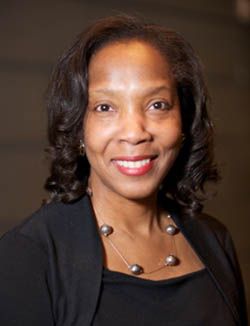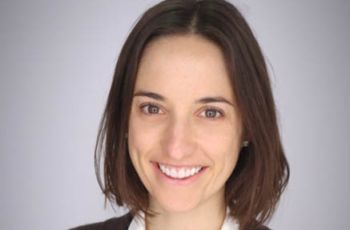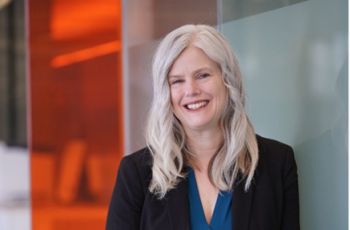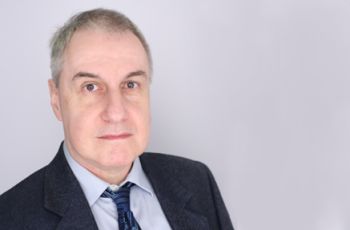
Sherrie Flynt Wallington teaches GW School of Nursing students about health disparities. While many of them learn about healthcare inequities in the classroom, Sherrie learned about them first-hand in rural North Carolina, where she grew up. As a child, she lost immediate and extended family members to health conditions that could have been managed or prevented altogether. One day, she asked the question, “How do I change this?” That question led her to GW via the University of North Carolina at Greensboro, Howard University, Harvard School of Public Health, and a Dana Farber Cancer Institute postdoctoral fellowship, where her research focuses on prevention, cancer health disparities, and health equity, and inspires the next generation of health professionals to close the inequity gaps.
What’s your story?
I grew up on a farm in Stokesdale, North Carolina. Because it was such a rural area, my family experienced poverty. My dad and grandfather died young of heart disease. We saw a lot of cancer and maternal mortality. My mom lost two sisters to tuberculosis, and even today, years later, she misses them terribly. The closest major comprehensive hospital was almost three hours away, in Chapel Hill. Later, I began to think, “This is so far away,” and the impact of that distance on individuals’ and communities’ health. Thus, my interest in geographical disparities began.
Later, smaller regional hospitals in the area and Chapel Hill had rural physician and nurse training programs where future healthcare professionals would visit rural areas to provide health education and health care. It was during some of these visits to our community that I began asking the doctors and nurses how they got into their careers. They told me they went to college and that I could go, too. I’d never even thought about going to college before then because no one around me had gone.
My mom and a Sunday school teacher encouraged me, so I applied to the University of North Carolina at Greensboro, and after several rounds of the SAT to improve my scores, I got in.
I later received my MA in Communication and Public Relations and was the communications director at a battered women’s shelter. My focus was always on health communication, health literacy, and health promotions. Whew - working with women and some men who had experienced violence is where I first learned about the power of communicating with local populations and building relationships with community advocates and the police department and how it directly relates to health disparities. I was so proud of the trainings we did with the police department to better help officers understand what mental and physical abuse looks like.
After roles with nonprofits, advertising agencies, and academia, I started thinking about the next steps in my career. During a discussion with a mentor about whether to pursue an EDD or a PhD, she said, “You know something, Sherrie? I have a hunch you’ll do great things, and a PhD would serve you better.”
I applied to Howard University and wrote my dissertation on community engagement and the high incidence and mortality rate of prostate cancer in Black men. Nobody thought I could recruit enough men to participate in my study. But by going to Black churches in DC and talking to the congregations, and also working with prostate cancer support groups at Walter Reed, I was able to recruit 50 men. Of course, they were in different phases of the cancer journey, and some of them died during the study, but these men were so amazing and so willing to talk to me. This work resulted in my first publication and a dissertation award.
While completing my dissertation, I communicated with Dr. Vish Viswanath, who, at the time, was at the National Cancer Institute and was later recruited by Harvard. He encouraged me to apply for a postdoctoral fellowship with the T. H Chan Harvard School of Public Health and Dana Farber Cancer Center. After many interviews and presentations, I was accepted, and I was off and running. My Institutes of Health and National Cancer Institutes (K01, R03) and American Cancer Society-funded work focuses on cancer disparities, health equity, and community engagement.
It was not a direct path to GW. There were many twists and turns. But this is my passion; it’s my life’s work. It started with my personal lived experience and then my academic journey. And now, I’m here.
What gets you out of bed in the morning?
My family. My mom is 93, and she’s such an inspiration to me. My passion is for helping people — not just individuals but our communities, helping them become strong and advocating for health. We need diverse voices at the table, which we haven’t always had. That’s very important.
We must build trust in our communities, listen to them, and hear what they need and want. Building trust means that, as health professionals and organizations, we must communicate and be transparent. We also need to identify the community change agents. They’ll help you break through the barriers and build research and community capacity. For many, the community is their home, their life, where they work, play, go to school, and live. This is one of my mantras, “It is not enough just to do research “IN” the community, we must research “WITH” the community.” This is a big and important distinction.
This work – it's not hit or miss. We're not trying to do what I refer to as helicopter research. I'm totally against that. You can’t partner with someone just to get your survey done or whatever. This has got to be about building a longstanding relationship with communities. This has to be that you're in it for the long haul, and you’ve made a commitment.
What is the one book that has most influenced you?
The Immortal Life of Henrietta Lacks. I’ve read it 15 times.
I was in high school when I first heard of HeLA cells, and I thought, “Well, that’s a strange name for a cell line.” But when I heard Henrietta’s story, I cried.
There are so many narratives in that one book. There’s Henrietta’s story. There's the story about the physicians and the story about Johns Hopkins. There’s the story about how these cell lines now save so many people’s lives. And there’s the story of triumph for Henrietta’s descendants.
But what amazes me is the journalist's story: how committed she was to telling Henrietta’s story, how she was repeatedly rejected, and how she traveled to these rural areas to find Henrietta’s family—simply amazing. Fast-forward to years later, and I was so honored to present my research at Meharry Medical College in Nashville with the author and journalist Rebecca Skloot and one of Henrietta’s Lacks’ descendants. It was truly a high point of my career.
What absolutely excites you right now?
Our clinical trial work focuses on cancer treatment, especially pediatric trials. Parents will do whatever they need to do to save their children, and this work is so important to them. We can still do better in getting more diverse populations involved with clinical trials, but we’ve made some strides.
We’ve spent decades identifying health disparities, and there is so much supporting descriptive research. Now, we’ve got to solve the wicked problems of these disparities and health inequities. I focus on working with the communities so they have equitable participation. The solutions can be found within the communities when we get the members involved from the very beginning and make sure they’re part of the conversation. My objective is to leave a community better off than when I found it, and I can only do that if they are true partners from the beginning.
What‘s the most important thing we should know about your work?
The most important thing you should know about my work is that I'm committed to prevention, reducing disparities, and achieving health equity for all. In our country, we don't spend enough time on prevention, and you can see that. Communication and health literacy are important threads of my work because health literacy is a critical social determinant of health that’s often overlooked.
Addressing disparities and ultimately achieving health equity requires working on interdisciplinary teams. We need law and policy, history, and anthropology. We need basic scientists; yes, we do. We also need population health scientists. We need community members. We need work that cuts across that continuum. My job is to bring these disciplines together to find the best solutions. These are the most important aspects of my work.



